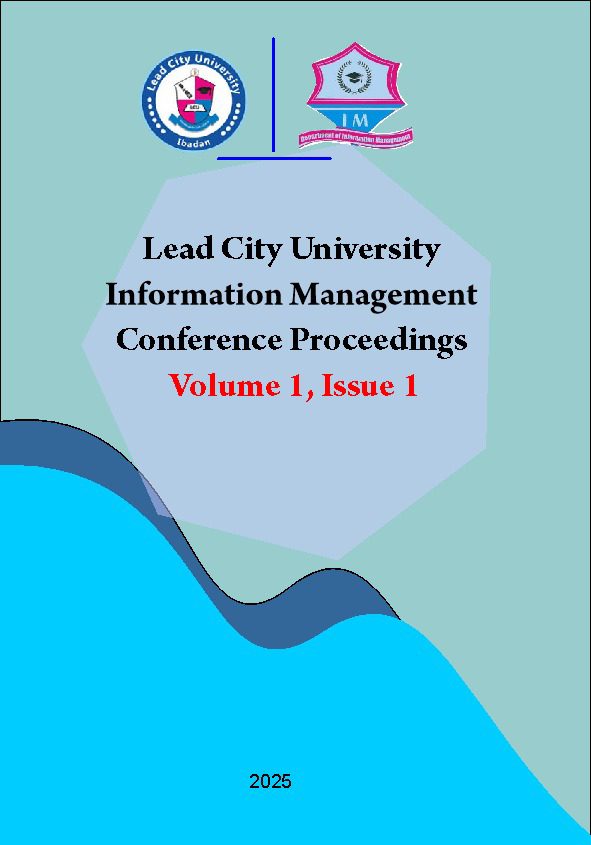Bridging the Gap: Individual Needs and Perceived Academic Achievements of Students through Personalised Knowledge Delivery by Librarians in Crescent University, Ogun State, Nigeria
Keywords:
Individual needs, Perceived academic achievement, Personalised learning,Abstract
Perceived academic achievement in contemporary timesof information abundance requires
students ability to effectively sieve and utilise relevant knowledge which is fundamental to
attaining the requisite academic achievement. This study therefore, investigated individual
needs, perceived academic achievement and personalised knowledge delivery among
undergraduate students of Crescent University, Abeokuta in Ogun State. Multi-stage sampling
technique was used to select 331 undergraduates from five colleges and eight departments out of
which 44.7% and 55.3% of the respondents were male and female respectively; 96.3% and 3.7%
were in 400 and 500 levels.Primary data were obtained on Individual needs, perceived
academic achievements (PAA) and personalised knowledge delivery (PKD) through the use of
adapted questionnaires. Data were analysed using mean and standard deviation. Results reveal
that the level of personalised knowledge delivery in meeting my academic goals was (= 3.15),
quality of one-on-one consultations with librarians (= 3.06) and rating the librarians' ability to
personalise services (= 3.03). The individual needs are visitation to the library to meet my
academic/ personal information needs (= 3.25) and frequently seek library resources such as
books, journals, digital databases (= 3.10). The perceived academic achievementsare more
confident with success in my academics (= 3.18), and confident to improve my academic grades
(= 3.16). Furthermore, challenges militating againstPKD are librarians not identifying my
needs (= 2.65), lazy attitude to reading (aliteracy) (2.64), and too much information to deal with
without guidance (= 2.61). It is recommended that the university should invest more on
development training for Librarians to encourage them in discharging their duties. Libraries
should therefore adopt a user-centered library approach when developing and implementing
innovative services

